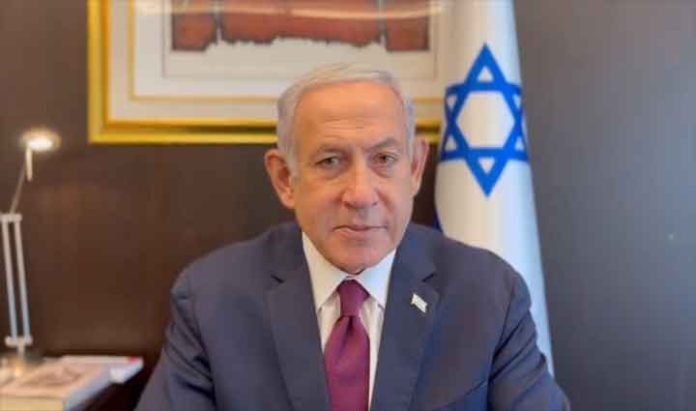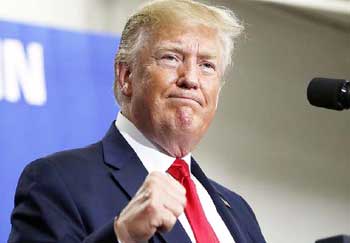The political and military tensions between Iran and Israel have escalated dramatically following Tehran’s release of a most-wanted list that includes some of Israel’s highest-ranking officials. The list, which Iran has framed as targeting “Israeli terrorists,” contains 11 names, most notably Prime Minister Benjamin Netanyahu, Defense Minister Yoav Gallant, and IDF Chief of Staff Herzi Halevi. Iran’s Intelligence Ministry has openly declared these figures as targets, igniting fears of increased hostility between the two nations.
This development comes amidst a backdrop of worsening relations between Iran and Israel, stoked by ongoing military and political confrontations in the Middle East. As both nations find themselves deeply entrenched in proxy wars and regional power struggles, this list could push the situation toward further violence.
Details of the Iranian Most-Wanted List
In an unprecedented move, Iran has publicly named 11 prominent Israeli officials on its most-wanted list. According to reports, this list is being used to galvanize Iranian forces and proxies in the region to focus on dismantling Israel’s leadership structure. The individuals named include:
- Benjamin Netanyahu – Prime Minister of Israel
- Yoav Gallant – Israel’s Defense Minister
- Herzi Halevi – Chief of General Staff, Israeli Defense Forces
- Tomar Bar – Israeli Air Force Commander
- Saar Salama – Commander of the Israeli Navy
- Tamir Yadai – Commander of the Israeli Ground Forces
- Amir Baram – Deputy Chief of the General Staff
- Aharon Haliva – Head of Israel’s Military Intelligence Directorate
- Ori Gordin – Head of the Israeli Northern Command
- Yehuda Fuchs – Head of the Israeli Central Command
- Eliezer Toledano – Head of the Israeli Southern Command
Iran’s Intelligence Ministry also delivered a direct warning in Hebrew, aimed at Israeli leadership, threatening their demise. These public threats signal a significant escalation in the conflict, suggesting Iran’s willingness to intensify covert and overt operations.
Context of Rising Tensions Between Iran and Israel
The issuing of this list follows a series of high-profile attacks and military actions between Iran-backed groups and Israeli forces. One of the key incidents that accelerated this hostile environment was the Israeli military strike in Lebanon targeting Hezbollah strongholds, resulting in the death of Hezbollah’s leader, Hassan Nasrallah. The Iranian government vowed retaliation, claiming that Nasrallah’s assassination would not go unanswered.
Furthermore, in recent weeks, Iran has directly linked Israel to the death of Ismail Haniyeh, a prominent leader within Hamas, following a missile strike that many believe to be part of an Israeli operation. Iranian officials view Haniyeh’s death as a direct provocation and have signaled that these events are fueling their broader goal of dismantling Israel’s influence in the region.
Iran’s Strategy: The Expanding Influence of Proxy Warfare
Iran has increasingly relied on proxy warfare to extend its influence across the Middle East. Through backing groups like Hezbollah, Hamas, and various Shia militias in Iraq and Syria, Iran has developed a sophisticated network that can destabilize governments and disrupt Israeli operations without direct involvement. By placing top Israeli officials on a most-wanted list, Iran is essentially expanding the scope of its covert military activities, potentially signaling that it is looking for opportunities to strike at high-value targets.
Israel, on the other hand, has long regarded Iran as its most significant strategic threat, particularly due to Iran’s nuclear ambitions and support for terrorist organizations. Israeli leadership has frequently called for global action to limit Iran’s capabilities, but the current situation suggests a regional showdown may be looming.
Hezbollah and Hamas: Key Players in the Proxy Conflict
Among Iran’s strongest allies in the region, Hezbollah and Hamas remain essential components of Tehran’s military strategy. Hezbollah, operating primarily out of Lebanon, has been engaged in conflicts with Israel for decades, often acting as a proxy for Iranian objectives. Similarly, Hamas, based in Gaza, has coordinated its actions with Iran to disrupt Israeli security measures, often receiving arms and financial support directly from Tehran.
In recent months, Iran has bolstered these groups with additional resources and military support, preparing them for potential engagements. Many experts believe that the most-wanted list is a rallying call for these militias to focus on high-profile targets within Israel, aiming to create significant disruption within Israel’s political and military leadership.
Potential Repercussions for Israeli-Iranian Relations
The release of this list is a stark reminder that the conflict between Iran and Israel is far from resolved. By singling out prominent Israeli officials, Iran has taken the conflict to a personal level, increasing the likelihood of retaliatory actions. This escalation could lead to further military confrontations across multiple fronts, with both countries leveraging their military power and intelligence capabilities to gain an upper hand.
Many political analysts view Iran’s actions as part of a broader strategy to weaken Israeli influence, not only in the Middle East but also on the global stage. The list is a clear message that Iran’s leadership is willing to go to great lengths, including targeting specific individuals, to pursue its objectives.
Israel’s Response to the Iranian Threat
Thus far, Israeli officials have not issued a direct public response to the list, but Israeli intelligence and security forces are undoubtedly on high alert. Israeli Prime Minister Benjamin Netanyahu, who has long been a vocal opponent of Iranian influence, will likely treat this development as a significant threat to national security. The involvement of high-ranking military officials on the list further emphasizes the seriousness with which Israel views the current situation.
Given the proximity of Iranian-backed forces and the extensive military capabilities at their disposal, Israel must now prepare for both immediate threats and long-term confrontations. This may involve heightened security measures, military strikes, and diplomatic outreach to international allies for additional support.
















